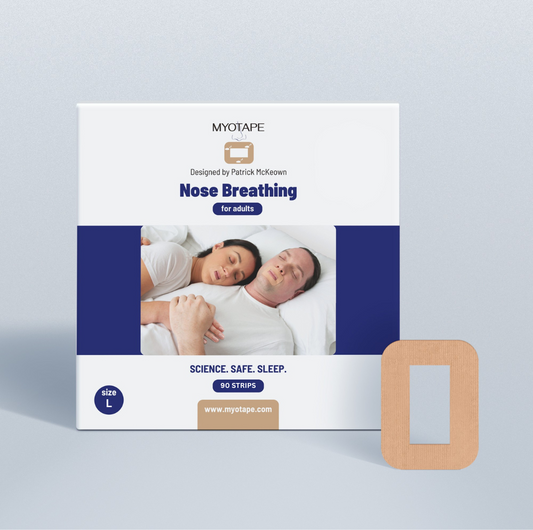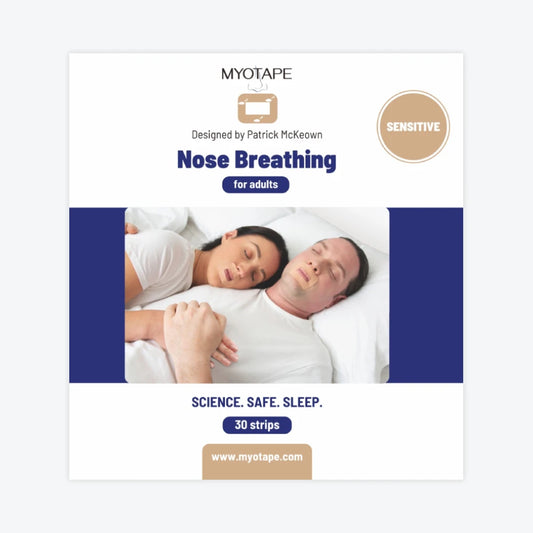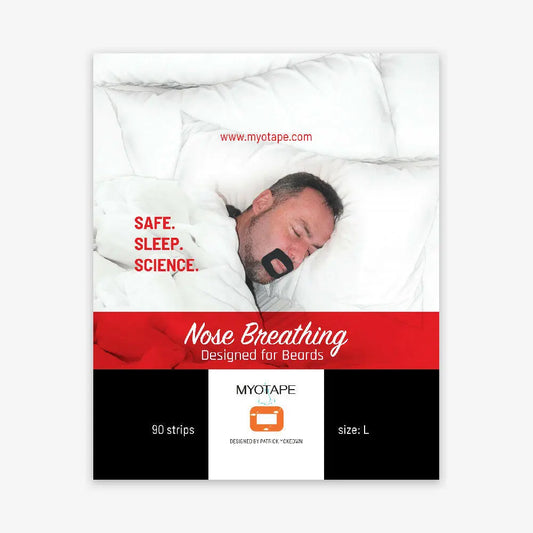Sleep is more than just closing your eyes for 7–8 hours. True rest comes from high-quality sleep; the kind that restores your body, clears your mind, and fuels your day.
Yet for many people, that kind of sleep feels out of reach, and they still feel tired after what they consider a “full night’s sleep.”
But what exactly makes the difference between simply sleeping and experiencing quality sleep?
In this blog post, we’ll explore what sleep quality really means, what can affect it, and 10 proven natural ways to improve it.
What is Sleep Quality and Why Does It Matter
When most people think about sleep, they focus on how many hours they spend in bed. But hours alone don’t guarantee proper rest. You can sleep for eight hours and still wake up groggy, unfocused, or irritable.
Sleep quality is defined as how restful and refreshing your sleep is, based on how easily you fall asleep, stay asleep, and wake up feeling restored. Basically, it refers to how well you sleep, not just how long.
A high-quality sleep means:
- You fall asleep faster without much effort
- You stay asleep with minimal interruptions
- You wake up feeling refreshed and alert
- You breathe easily while sleeping
Quality sleep is deep, restorative, and largely uninterrupted. During this time, your body repairs itself, your brain processes memories, and your nervous system resets.
This is the difference between sleep and quality sleep: one measures time, the other measures how restorative those hours are.
The benefits of good sleep quality
Getting quality sleep goes far beyond feeling rested. Quality sleep supports:
- Steady energy throughout the day
- Better focus and memory
- Stronger immunity
- Emotional balance and resilience
- Higher sleep perfromance scores
On the flip side, an example of poor sleep quality might be waking up with a dry mouth, sore throat, or grogginess despite being in bed for eight hours.

The effects of poor sleep quality can include:
- Low productivity
- Irritability and mood swings
- Higher sleep debt
- Trouble concentrating
- Higher risk of long-term health issues like heart disease
In fact, research highlights the far-reaching consequences that can be. A large-scale sleep index report from China found that 31% of people experienced low sleep quality, with 38% of working individuals reporting sleep problems that directly impacted their daytime performance.
Another 2007 study found that people with insomnia symptoms or poor sleep quality had significantly lower psychological well-being, showing how closely sleep and mental health are connected.
In short, sleep quality is not a luxury, but it’s the foundation of your daily performance, health, and overall well-being. So what factors could affect the quality of your sleep.
What Affects Your Sleep Quality?
Many things influence how well you sleep at night. Some are lifestyle-related, while others are linked to your environment or even your breathing. So, if you feel drained after sleeping, something is likely disrupting your rest.
Some common causes of poor sleep quality are:
- Stress, depression, and anxiety
- Too much screen time before bed
- Caffeine or alcohol in the evening
- Irregular sleep schedules
- Environmental factors like noise, light, or temperature
- Menopause may also affect sleep
- Dysfunctional breathing, which includes heavy breathing and mouth breathing.
These are examples of what can affect your sleep quality. It’s also important to note the difference between sleep hygiene and sleep quality. Sleep hygiene refers to the habits and environment that set the stage for rest, while sleep quality is the outcome, whether you actually wake up restored.
As mentioned earlier, one of the most overlooked factors that affect sleep quality is how you breathe while you sleep. Smooth, nasal breathing supports better sleep efficiency, deep, and restorative rest. But heavy and mouth breathing often leads to:
- Dryness and irritation in the throat
- Snoring and fragmented sleep
- Micro-awakenings that pull you out of deep sleep
- Dry mouth
If you exhibit any of these signs, it indicates that your breathing during sleep may be compromised, which in turn affects your sleep quality.
The reason is that when you breathe heavily or through your mouth, it increases airway resistance, leading to snoring, fragmented sleep, and even micro-awakenings that prevent you from reaching deep sleep stages, because your body works harder to breathe.
In contrast, nasal breathing during sleep is smooth, good for the airways, and supports deep, restorative sleep. Now, let us find out how you can improve your sleep quality naturally.
10 Proven Ways to Improve Sleep Quality Naturally

There are several things you can do to improve the quality of your sleep without medications. Here are some natural ways to promote better sleep quality:
1. Reduce the use of devices before bed
Phones, TVs, and tablets keep your brain alert long after you’ve put them down. The light delays melatonin, making it harder to fall asleep and stay asleep.
A practical solution is to avoid using screens for at least an hour before bedtime. If that feels too hard, start small: dim the brightness, use night mode, or swap scrolling for reading a book or listening to something calming.
2. Eat and drink with sleep in mind
Caffeine, alcohol, late meals, and too much fluid in the evening all interfere with restful sleep. Caffeine lingers in your system, alcohol fragments sleep, and heavy meals or excess drinks can wake you up at night.
To make sleep easier, keep coffee and tea in the morning, avoid alcohol close to bedtime, and finish eating at least two hours before sleep.
Additionally, limit your fluid intake in the evening to reduce bathroom trips.
3. Stay active during the day
Your body needs to use energy during the day to build a natural drive for sleep at night. Exercise also helps reduce stress, which in turn makes it easier to fall asleep.
Aim for 30 minutes of moderate activity most days, like walking, cycling, or swimming. Even light activity, such as taking the stairs or stretching during breaks, supports better sleep quality.
If you're a parent, allowing them stay active during the day can help your child sleep better.
4. Build a simple bedtime routine
Going straight from work, chores, or screens to bed makes it harder to switch off. A short routine helps your body recognize it’s time to rest.
Please keep it simple: dim the lights, take a warm shower, stretch, or write down tomorrow’s tasks so your mind can let go. Repeating the same steps each night trains your body to relax faster.
5. Keep your sleep schedule consistent
Your body’s clock works best when it knows what to expect. Irregular bedtimes confuse your system, making it harder to fall asleep and wake up refreshed.
Pick a bedtime and wake-up time that you can stick to most days, including weekends. Even if you adjust slowly, consistency will improve your sleep quality over time.
6. Get outside in the morning
Morning light resets your body’s internal clock. Just 5–10 minutes outdoors soon after waking helps regulate melatonin and makes it easier to fall asleep at night.
If you can’t step outside, sit near a bright window. Natural light, even through glass, is far better than none at all. Try combining it with a short walk to get both movement and daylight.
7. Make your bedroom sleep-friendly
Where you sleep matters as much as how long you sleep. Light, noise, and temperature all affect whether you stay in deep sleep or wake up during the night.
Keep your room dark with curtains or an eye mask, quiet with earplugs or white noise, and slightly cool. Remove clutter and electronics so your bedroom feels like a place for rest, not work.
8. Keep naps short and early
Naps can recharge you, but excessive daytime sleep can reduce your body’s need for rest at night. Long or late naps often lead to tossing and turning.
If you nap, keep it to 20–40 minutes and aim for earlier in the afternoon. This way, you get the energy boost without disturbing your nighttime sleep.
9. Manage stress and anxiety
Stress raises cortisol, your “alert” hormone, and makes it harder to wind down. That’s why calming your mind is just as important as dimming the lights.
Breathing exercises are a powerful tool. Slow, light nasal breathing signals safety to the brain, helping the body shift into relaxation mode. The Buteyko Method is a breathing technique that teaches you gentle breathing exercises to quiet the nervous system and prepare you for rest.
One simple practice is to sit quietly and breathe gently through your nose for 5–10 minutes before bed. The Buteyko method focuses on reducing breathing volume, which helps calm the nervous system and lower stress. This makes it easier to drift into sleep and stay asleep.
10. Breathe through your nose while sleeping
How you breathe at night can make or break your sleep. Nasal breathing supports deeper rest by increasing nitric oxide (which keeps airways open), conserving moisture, and reducing snoring.
Mouth breathing, on the other hand, dries out the throat, fragments sleep, and increases airway resistance. This causes poor sleep quality and even daytime fatigue.
If you often wake up with a dry mouth, try using MyoTape. It is a gentle support that helps keep the lips closed without fully sealing the mouth. This encourages nasal breathing while still allowing you to breathe safely.
Over time, consistent nasal breathing while asleep can transform your nights: fewer awakenings, more time in deep sleep, and better hydration. It’s a small shift with a big payoff.
MyoTape Will Give You Better Sleep Quality
Improving sleep quality isn’t about spending more time in bed, but about getting deeper, more restorative rest. The habits we covered, like steady routines, less screen time, and stress reduction, all help. But one factor rises above the rest: how you breathe at night.
Nasal breathing supports uninterrupted, high-quality sleep by keeping airways open, reducing snoring, and helping you stay in the deep stages of rest. In contrast, mouth breathing fragments your sleep and leaves you feeling drained.
MyoTape is the proven way to restore nasal breathing while you sleep. Designed by breathing expert Patrick McKeown, it’s safe, comfortable, and effective in stopping mouth breathing at night.
Make MyoTape part of your bedtime routine. Order today from the MyoTape online shop and select from a variety of options designed for everyone, including mouth tape for kids, mouth tape for adults, mouth tape for sensitive skin, mouth tape for beards, and start waking up truly refreshed.








